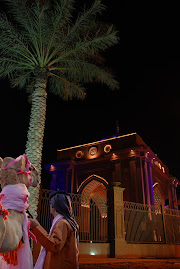Local graduates could use local advice on their big day
(By Tala Al Ramahi | The National | Published June 16, 2009)“We live in a world far more slavish in its obedience to ancient custom than we like to admit. And ancient commencement day custom demands that somebody stand up here and harangue the poor graduates until they beg for mercy.”
Russell Baker, Connecticut College commencement address, 1995
Most of us probably don’t remember what was said at our college commencement speeches, thanks partly to the gift of time that makes us forget. And most graduates are eager to walk into “real” life as its new saviours (or just to make lots of money), and on graduation day, they just want the speech over with so they can start the “real” celebration.
Since in those days we already knew it all, we might not remember any of the lessons that commencement speakers delivered, but we rarely forget who it was that made the speech. In the United States, a university commencement speaker is usually a distinguished professional in his field, preferably someone with celebrity status, and is almost always affiliated to the university in one form or another.
Prestigious universities pride themselves in being able to snatch the “big fish”, because big names (the university) inevitably attract big names (the speaker), but also because prestigious universities graduate a fair amount of prospective pioneers who eventually become the big fish, who then come back to deliver the big speech.
I remember when Stanford University announced the commencement speaker for the 2007 graduating class; a flurry of editorials and op-eds thronged the student newspaper questioning the university’s choice: who is Dana Gioia? For the record, he’s an American poet an advocate for the arts.
But why couldn’t we get someone like Steve Jobs or the US supreme court justice Sandra Day O’Conner. Heck, why couldn’t we get Sergey and Larry (aka, “the google guys”). We could have pretended that they hadn’t dropped out of the Stanford PhD programme to become richer than any of us with degrees could ever hope to be.
I don’t remember much from the speech Mr Gioia gave that scorching California day, but I acutely remember him poking fun at our concerns that he wasn’t famous enough. “I couldn’t agree more,” he told us.
The following year Oprah Winfrey delivered the school’s commencement address. I think the class of 2007 bitterly remembers 2008 as the year the university compensated for our disgruntlement by giving those that followed us the most powerful name in entertainment and the richest self-made woman in America.
It seems commencement speeches in the United Arab Emirates are not given as much significance. Premier institutions such as the Abu Dhabi University and the American University of Sharjah, for instance, do not follow such a regular tradition.
On the other hand, the American University of Dubai, despite its youth as an institution, has managed to attract influential figures, most recently Colin Powell, and in the past other renowned personalities, such as Steve Forbes, Christiane Amanpour and Bill Clinton.
While such names deserve to deliver a university’s commencement address, why can’t we capitalise on the talent we have in this region? In the 11 years that AUD has “sent off” its graduating class into the real world, none of its commencement speakers were regionally-based.
Because most of our institutions are so new, it is understandable that the commencement speaker will not necessarily be affiliated to the university which invites them to speak, since it usually takes many years, if not decades, after graduation to reach a position of authority where one becomes an internationally recognised name.
That said, it won’t be a hard task to poach locally-based personalities to deliver a commencement address that can communicate the unique struggles of our region and who can touch on distinct themes that students here can relate to.
The challenge is crafting the speech itself. After all, what do you tell a group of students who think they know it all? What can you say that will make them remember a lesson from that 15 minute oration?
A new batch of local graduates have been sent off to this scary world called life. Let’s make sure next year’s cap-and-gown clad students hear something equally engaging from someone who got a regional taste of the journey that they will be about to begin.






























